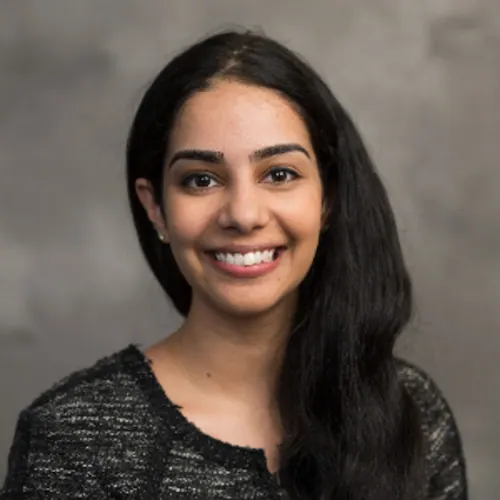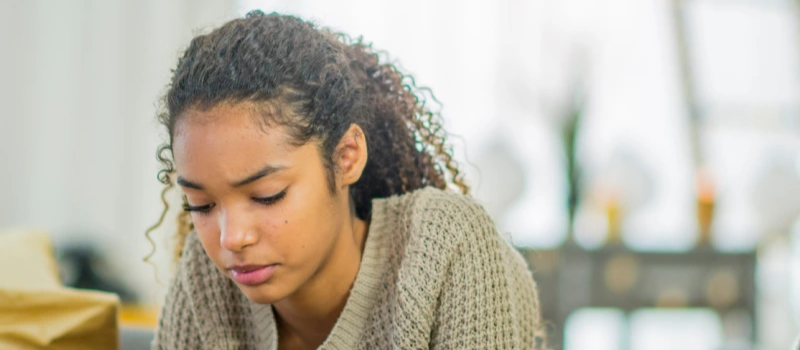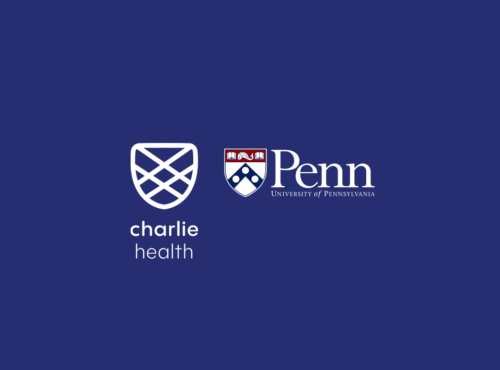
Table of Contents
What Comes After IOP?

Written By: Dr. Rasna Kaur Neelam
May 9, 2023
8 min.
As soon as someone enters Charlie Health's Intensive Outpatient Program (IOP), our team starts strategizing ways to support them once they meet their mental health goals and finish treatment.
Learn more about our Clinical Review Process
Table of Contents
IOP is the virtual 9-12 hours per week Intensive Outpatient Program that Charlie Health provides for teens and young adults living with complex mental health challenges.
In this article, Charlie Health interviewed Ann Matino, Licensed Clinical Social Worker and Clinical Director of the Southern Region, to discuss what happens after a patient is discharged from Charlie Health’s IOP.
Thanks for speaking with us! Could you please introduce yourself to our audience?
My name is Ann Matino. I am a licensed clinical social worker, and I’ve worked in social work for about 40 years. I love psychology and social work and lived overseas a lot when I was young. I think that influenced my interest in working with people from all backgrounds. I am the Clinical Director for the Southern region of the United States for Charlie Health, and I oversee a team of therapists who treat folks in Texas and Tennessee at this time.
What does IOP stand for and what does it mean? Is this something unique to Charlie Health?
IOP stands for intensive outpatient programming. This term is used across the behavioral health field and refers to a level of care that clients sometimes require.
We can think of mental health care as a spectrum:
- The “lowest” level of care is generally thought to be outpatient therapy. This may involve a 1-hour session every week. Charlie Health does not offer this level of care exclusively but can help coordinate this level of care for clients who need it.
- A step up from outpatient therapy is IOP, which is the only level of care that Charlie Health provides. Clients participate in 3 weekly 3-hour sessions in groups. In addition to these facilitated groups, clients partake in a weekly 1-hour individual session, as well as family therapy. Because Charlie Health’s IOP is all virtual, clients can go to school, work, and live their lives all while receiving intensive care.
- Finally, if a patient is a danger to themselves or others, they may need hospitalization or residential treatment, a type of treatment where a client lives at the site where they are receiving care. Similar to outpatient therapy, Charlie Health does not offer this level of care but can coordinate it for clients in need.
Levels of care are not “right” or “wrong.” Instead, we think of them as what the client needs at that time. As required, clients may need to transition from one of the levels of care to another. At Charlie Health, we make sure those transitions are smooth.

Industry-leading outcomes. Personalized treatment.
A higher level of care when you need it most.
What are the goals of IOP? What does it look like for a client to be in the Charlie Health Intensive Outpatient Program?
Charlie Health was started because adolescents and young adults are in the midst of an ever-growing mental health and suicide crisis. Our mission is to dramatically decrease the incidence of suicide in the United States by providing connection and treatment, even in remote places.
When a client is enrolled in our IOP, we look at functional impairments caused by mental health conditions. Maybe a client is tanking at school, can’t keep a job, or has terrible relationships. These are specific functional markers we can incorporate into client goals.
At Charlie Health, the IOP curriculum usually runs from 9-12 weeks. We have 9 weeks of an evidence-based curriculum, and sometimes individuals stay to repeat and gain practice in certain areas of need, which is welcome.
The following three parts all happen weekly:
- Teens or young adults enrolled in our program will have 3 group sessions, each lasting 3 hours (9 hours total per week). Group programming may involve one hour of skills, one hour of processing, and one hour of experientially-based treatment. Some group sessions may involve drama or art as ways to process trauma or work on skills.
- For group sessions, individuals are grouped based on age and primary concern—for example, groups may include individuals experiencing anxiety surrounding being LGBTQIA+, women with trauma, or teens with major depression. They may not have the exact same backgrounds, but they share similar experiences and can relate to each other. Additionally, clients have weekly individual sessions with the same therapist every week.
- Finally, most of our adolescents and their families attend family therapy once a week. For families, we also have something I’ve never seen at any other IOP program: 20+ free groups that Charlie Health families—anyone with a loved one in treatment—can attend at their convenience. These include family skills groups, support groups, groups for grandparents or foster parents, and groups for partners. We provide a lot of family support because we have found that the more that families are involved, the better their loved one’s treatment outcomes.
How does Charlie Health prepare clients to transition to a lower level of care after the IOP is complete?
We begin discharge planning at the start of IOP, not at the end. Our goal is to make sure our clients feel support throughout every part of their time with Charlie Health.
Let’s say a young adult was referred to us by their therapist for a higher level of care. Maybe their discharge plan is to go back to that therapist. Another client, for example, might come to us because they went to a hospital after attempting suicide and may not have a therapist at all. In that case, we would find them an appropriate care provider to continue to build skills and have support post-Charlie Health IOP.
We have a whole discharge team who we rely on to find options after discharge for in-person or telehealth therapy. If we are expecting a client to discharge in the next several weeks, we ask our discharge team to start looking into resources that would match the client’s insurance and location so we can start sending the client options.
We also have an alumni network for clients to access after they have been discharged. Alumni services can be accessed here.

What happens when clients need to transition to a higher level of care?
On the flip side, if someone’s symptoms are getting more intense, and it doesn’t seem like IOP is the right level of care because of safety, we may consider coordinating a higher level of care. We would work with the discharge team and sometimes with the outreach team (located in the same geographic area as the individual) to find a higher level of care that works for that client.
We also craft safety plans for clients with a history of self-harm or suicidal ideation to create an added layer of care throughout their treatment here at Charlie Health.
If a client ever expresses intent to self-harm or vocalizes suicidal ideation or even a suicide plan during a virtual group session, we immediately shift from the main group into a side “room” (virtually, of course). There, they talk with a trained mental health crisis professional who assures the client that they’re safe, loved, and supported.
From there, we make a decision to determine whether or not this was a one-off incident that needs to be addressed more thoroughly in their care plan or if the client should be admitted to a higher level of care. All of this is in coordination with the client, their family (if applicable), and their entire care team, which can include external providers as well.
Join the Charlie Health Library
Get mental health updates, research, insights, and resources directly to your inbox.
You can unsubscribe anytime.
Who decides when it is time to be discharged from the intensive outpatient program?
When a client comes into Charlie Health, they develop a treatment plan with their primary therapist. These are the goals that they have for themselves. We take these goals and develop objectives and interventions to guide the treatment plan.
Over time, we start looking at how clients are meeting their goals. We look to discharge when they're meeting their goals and don't fit the criteria for IOP anymore. Ideally, it is always a mutual decision based on the client meeting treatment goals to transition from IOP to outpatient treatment (often once weekly therapy sessions).
Sometimes, insurance may also drive the conversation if they feel the client does not meet the criteria to be in the IOP curriculum. However, we work with insurance to make sure the transition is smooth and not abrupt.
I'm really proud that with Charlie Health, we make sure we do the best ending we can. Clients meet with their primary therapist one last time and we set up a closing circle like a graduation with their group so that others can reflect on their successes. It's a sweet ceremony. We really want to provide the best ending and a warm handoff to the next level of care.
What do you think makes for a successful transition?
I would say that the timing is really important. If someone is going from IOP down to outpatient care, which is usually what happens, the first session with that new therapist should be set up before they end with Charlie Health.. This way, there isn’t a big gap between the IOP and continued care.
I think another key component is related to medications. If folks are getting medications from psychiatrists at Charlie Health when they're in our program, they also need a psychiatrist when they leave to continue prescribing those medications. Again, we want to make sure there’s a warm handoff from one provider to another. Our discharge and outreach team will work with the client to coordinate this.
Finally, something that makes for a successful transition is letting parents know that we're not judging them or blaming or shaming them because of their parenting and that they have our support. Many parents feel these emotions when they've got kids who are struggling. And so by coming up to them and saying, “Do you need help?” “What can we do for you?” we allow them to be a part of the solution.
If you or a loved one is interested in the Charlie Health Intensive Outpatient treatment, click here to get started today. Charlie Health is covered by almost all insurances as well as Medicaid.




